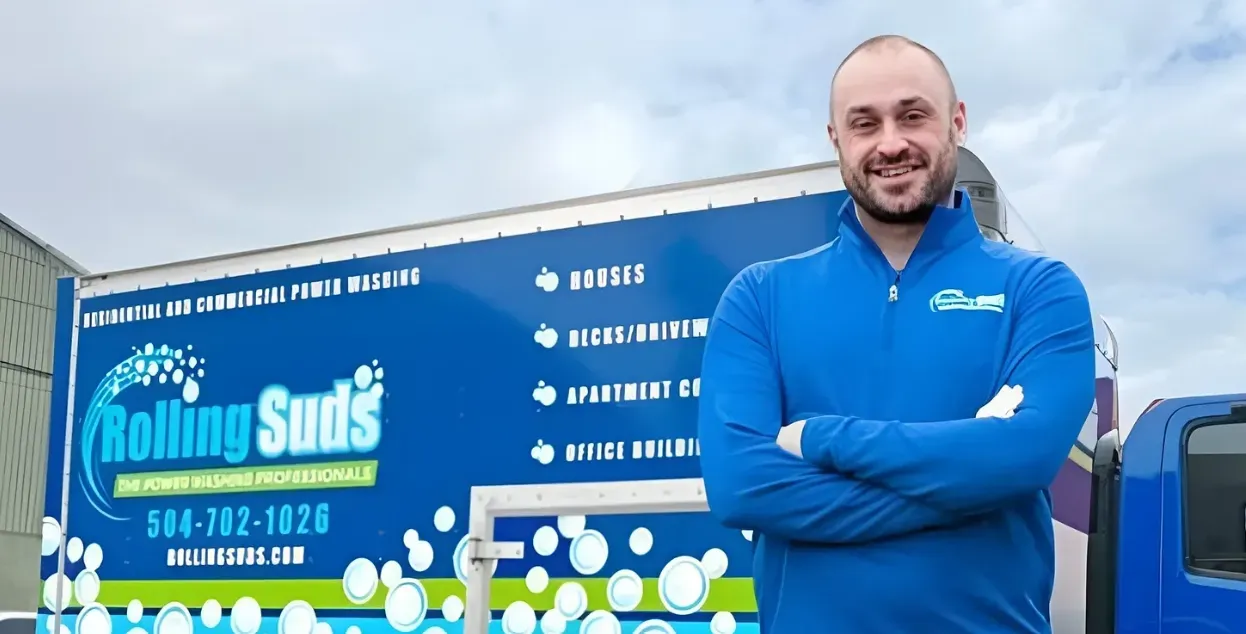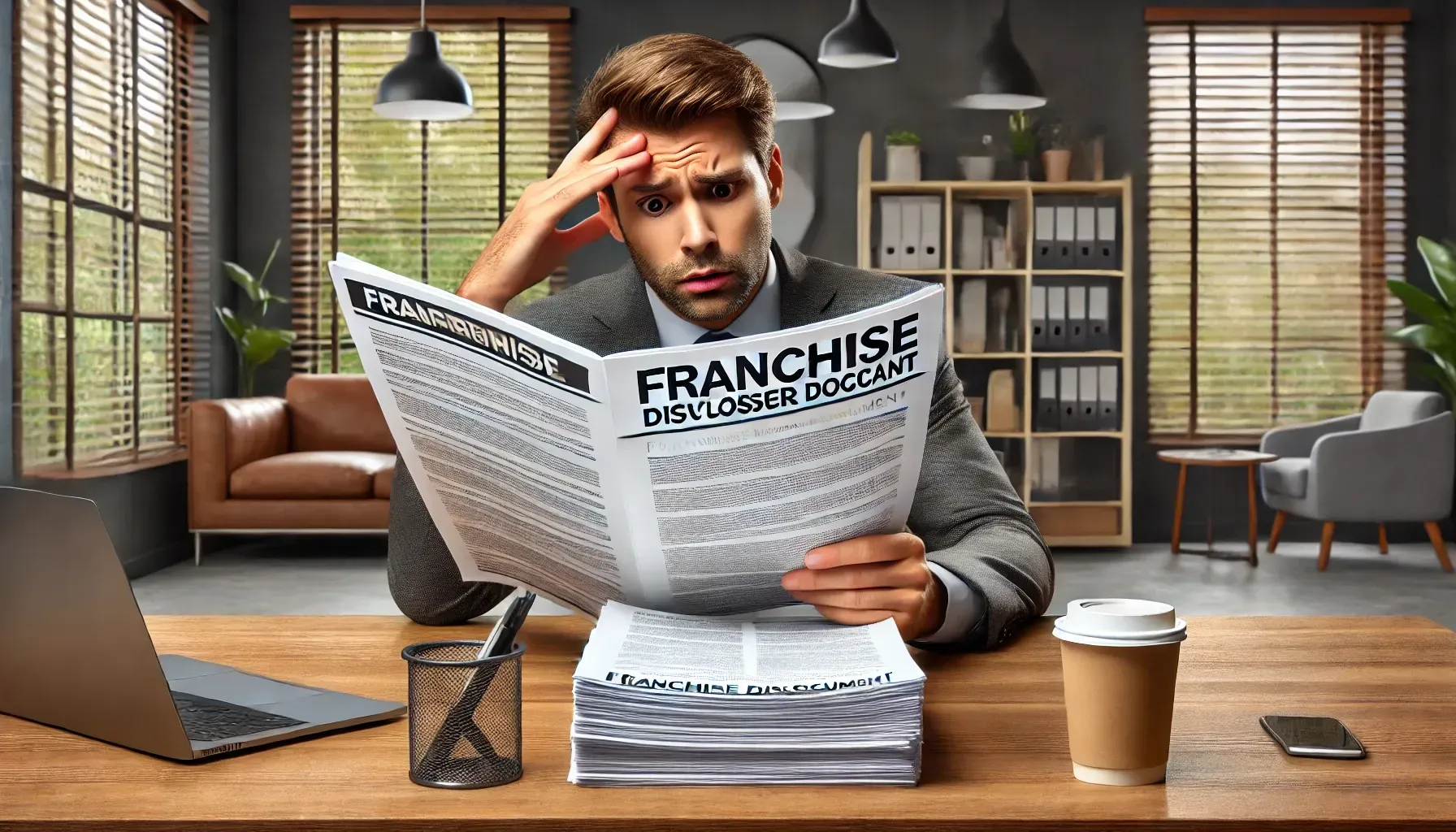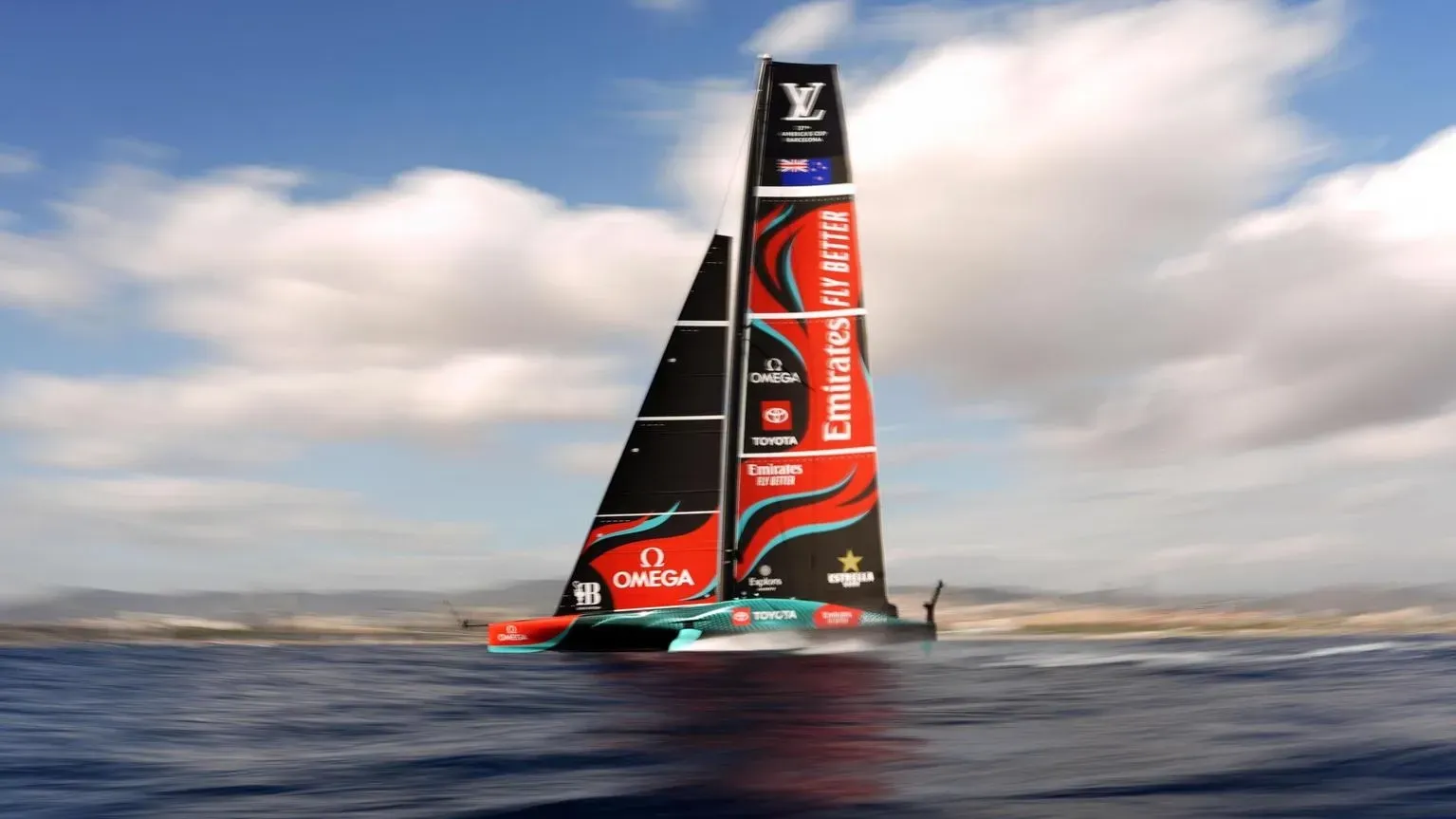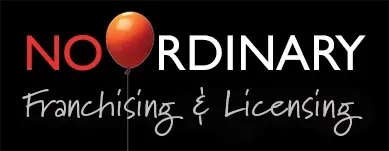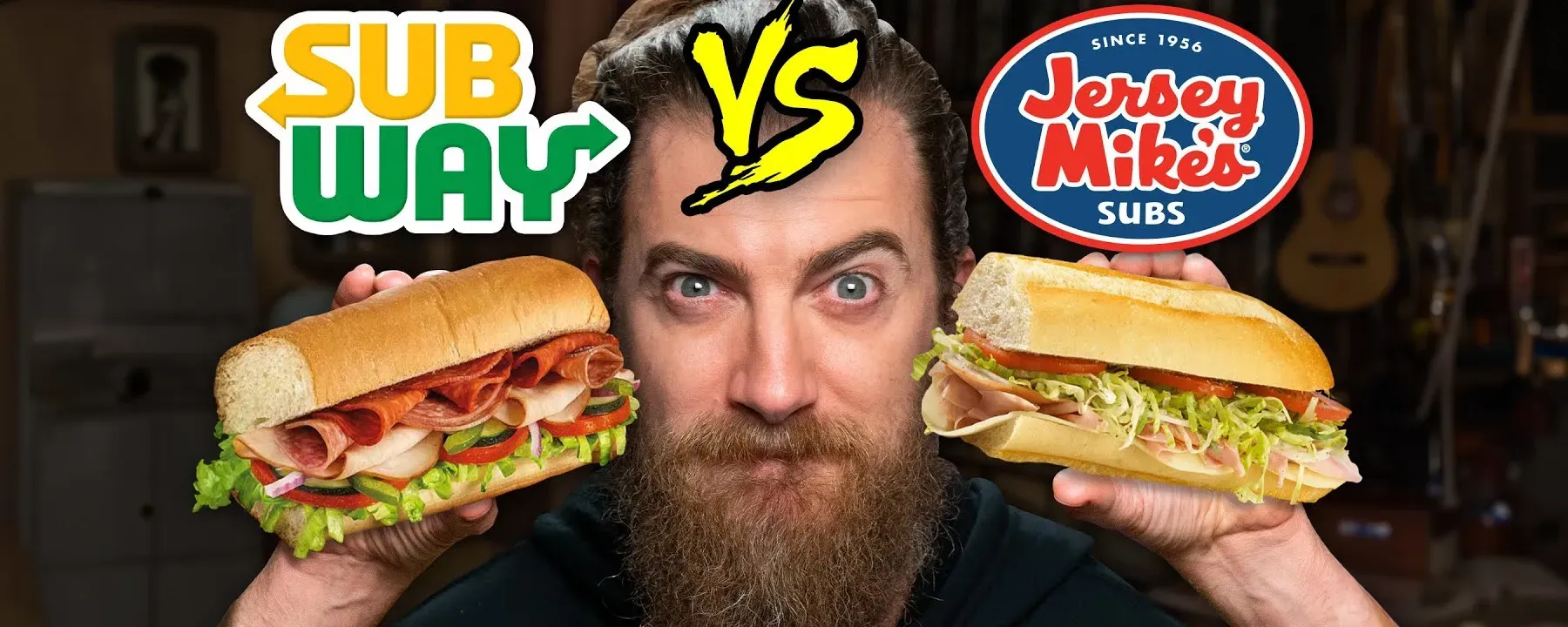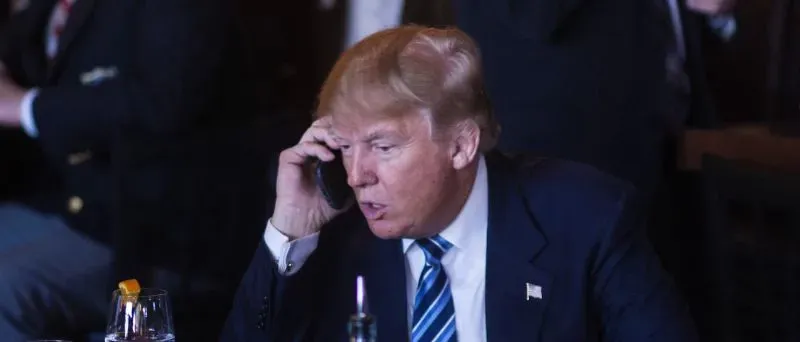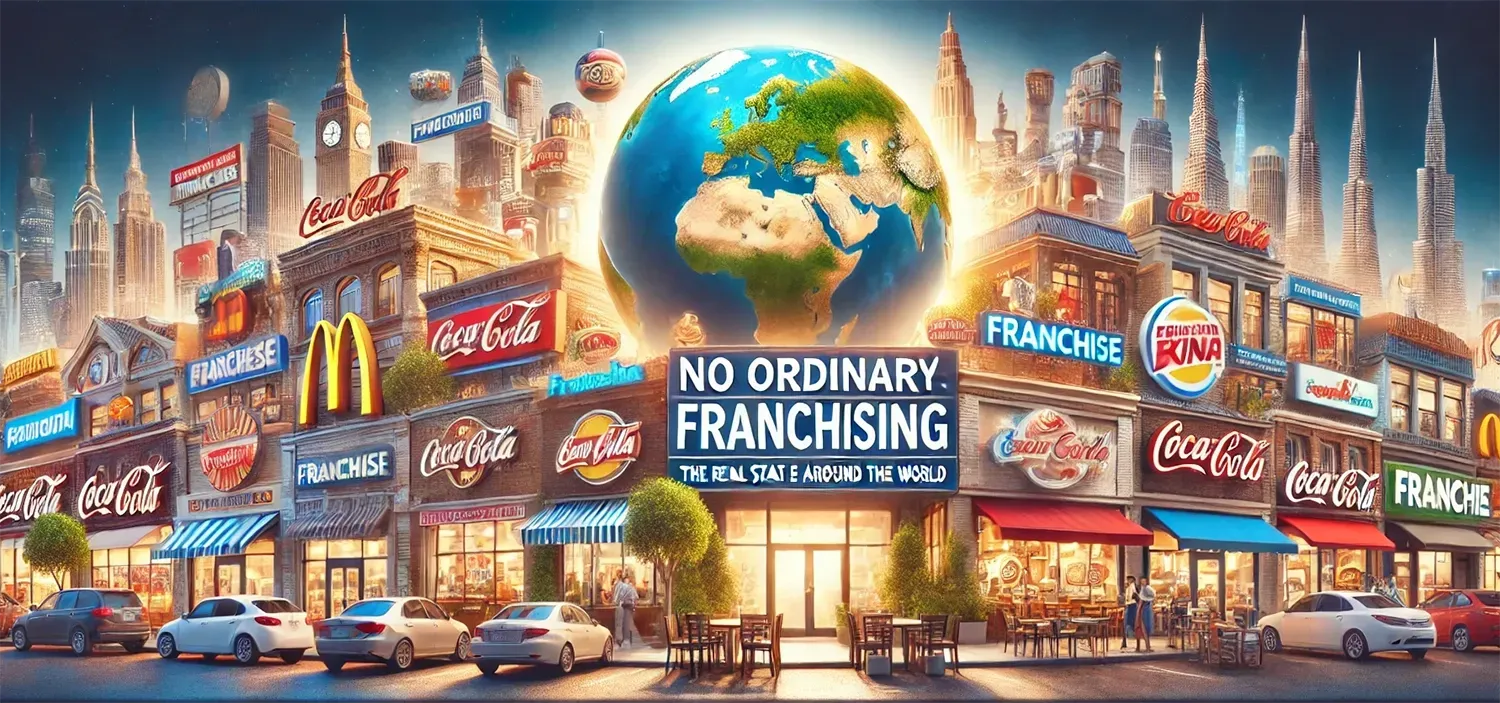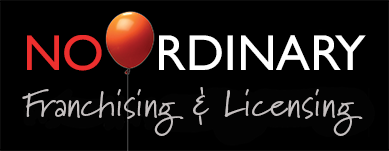How to Supercharge Your Franchisees’ Sales (And Your Royalties)
Franchise systems live or die by the success of their franchisees. A thriving franchise network means more sales, happy franchisees and a growing stream of royalties for the franchisor.
But how do you, as a franchisor, help your franchisees supercharge their sales and, by extension, increase your royalties? The answer lies in strategic growth initiatives that focus on scaling performance across all aspects of the franchise business.
In this article, I'll provide real examples of franchisors who have empowered their franchisees to double, triple and even 10X their sales—and how they did it, leading to a win-win for everyone in the system.
1. Data-Driven Performance Management
Data doesn’t lie, and smart franchisors know that tracking performance metrics is critical. If you're not already using data analytics to monitor franchisee performance, or if the only metric you're tracking is franchisee sales, you're missing out on a significant opportunity to boost your own revenue.
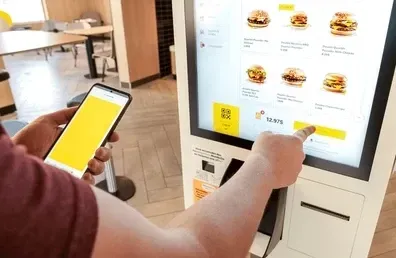
Case Study: Why McDonald’s always seems to recommend your favourites
McDonald's, once famous for mass-marketing, are now in the business of mass-personalisation. By gathering information from drive-thru kiosks, mobile app and digital menus on customer behaviour, order history and menu items, they are able to predict customer preferences and adjust their menus accordingly, moving purchase decisions away from the counter, speeding up sales and increasing revenue-per-customer.
To advance this algorithmically-driven ‘decision logic’ technology in its own stores, McDonald's even bought a tech startup, Dynamic Yield, which also provides its Machine Learning services to retailers such as Ikea and Sephora. They later sold the company to Mastercard for a reported $127 million profit (but they still use its services).
You don't have to buy a tech company to better utilise data to drive sales growth. There's plenty of amazing data-driven performance management technology available for smaller franchise systems—and I can help you identify and implement the right ones for you.
- Key Metrics Monitoring: The first step is to identify your most important key performance Indicators (KPIs)—sales per square foot, average transaction size, repeat customers, local marketing spend, etc. These are the metrics that drive your franchisees' businesses as well as your franchise as a whole. The next step is to track these metrics and establish a dashboard which enables franchisees—and you—to see what’s working and where adjustments are needed.
- Benchmarking Success: As a franchise consultant, it always baffles me why so many franchisors don't seem to recognise the benefits of benchmarking. Compare your top-performing franchisees with those that are struggling. Highlight what the top 20% are doing differently and share those insights across your network. This open sharing of data motivates the team to do what they do with the success of the whole franchise and encourages friendly rivalry between them.
- Personalised Coaching: Use data to identify which franchisees need additional coaching and support. Provide actionable steps to help them improve, from optimising inventory to refining customer service practices.
2. Hyper-Local Marketing Strategies
One of franchising's 'secret weapons' is the combination of national and local marketing that most franchise agreements stipulate. But many franchisees don’t fully utilise the power of localised marketing. National campaigns can generate brand awareness, but hyper-local marketing can drive immediate foot traffic and sales.
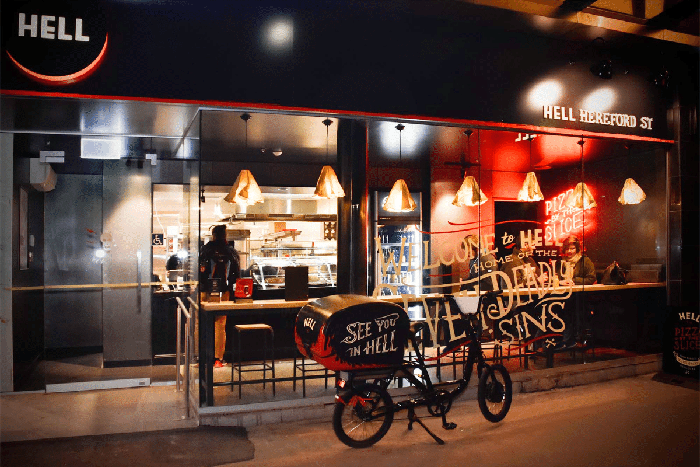
Case Study: Hell Pizza taking hyper-local marketing to the streets
If you haven't heard of Hell Pizza, then you probably don't live in New Zealand. This upstart franchise used provocative and often controversial branding and marketing to catapult itself into third place as the largest pizza chain in the country after Domino's and Pizza Hut. A big part of their success has been their hyper-local marketing strategy, encouraging their franchisees to 'live and breathe' their unique brand. This meant that franchisees were free to trick out their own stores and use direct marketing and quirky events to target local markets. One franchisee even bought and branded an old black hearse which was occasionally used for delivering pizzas and was always parked in high-traffic areas.
Here are some other ways your franchisees can hyper-localise their franchise marketing:
- Leverage Local SEO: Ensure each franchisee’s location is optimised for local search. Encourage franchisees to claim their Google My Business page and regularly update it with promotions, events and positive reviews.
- Community Involvement: Encourage franchisees to get involved with local events, charities or sports teams. Customers love businesses that invest in the community. Think about sponsoring local youth sports or hosting in-store events that connect with neighborhood causes.
- Targeted Social Media Campaigns: Train franchisees to use social media ads targeting their immediate geographic area. Platforms like Facebook and Instagram allow hyper-targeting, meaning ads can focus on potential customers within a certain mile radius.
3. Upskilling Franchisees and their Teams
When speaking at franchise conferences, I often ask the franchisees how many books they've read or courses they've taken in essential business practices such as marketing and selling. Usually only a handful of hands go up. A well-trained team can be the single most powerful lever for increasing sales. If your franchisees
and their teams aren’t continually improving their skills, you’re leaving money on the table. But even franchisors which provide excellent ongoing training for their franchisees often forget that their franchisees' people need training too and neglect to 'train the trainers'.

Case Study: Signature Homes' revolutionary sales management process
Although I am based in Auckland, New Zealand, I work with franchises all over the world, but of course many of these are based in my home country. Signature Homes is one of these. Since I started working with them in 2000, they have risen from a small specialist home-building franchise into New Zealand's largest home-grown building brand. One of the keys to that success was to recognise that Signature's franchisees were builders, not sales people. They all employed commission-based sales people to do the selling for them, but not being experienced in selling themselves, had little idea of how to effectively manage their teams. That's when Signature's owner and I had a brainwave—instead of trying to train the franchisees in sales management, why not employ a National Sales Manager to train, motivate and support the franchisees' sales people on their behalf? I happened to have recently met a person who I felt fitted the bill perfectly. He is pictured at left in the photo above with my wife and me at Signature Homes' 40th Anniversary Dinner, celebrating 20 years with the company and an 10X increase in Signature's franchisee sales over that time.
Here are some other ways you can upskill your franchisees and their teams:
- Treat learning as an important ongoing process: I've seen too many franchisors who provide their franchisees with initial training and a manual—and that's it. Best-practice franchises go several steps further, providing their franchisees, their franchisees' employees and themselves with continual upskilling and development opportunities.
- Training Bootcamps: Host regular training workshops for your franchise support team as well as your franchisees and their teams. Bring in expert trainers and coaches to teach specialist skills. Remember that no matter what roles trainees may play, everybody in your organisation is a sales person—so make sure your operations people as well as your sales people always treat customers as the most important people they deal with and always look for opportunities to up-sell and cross-sell.
- Product knowledge is key: Ensure franchisees ad their teams are fully educated on your product or service offerings. Customers trust knowledgeable staff, and being able to answer questions confidently can lead to better sales.
- Incentive Programmes: Encourage your franchisees to motivate their employees by setting clear objectives and using incentives to reward them for achieving their objectives. Do the same with your own franchise sales and support team. Some franchisors also use a scaled royalty system to incentivise higher sales from their franchisees. The higher the sales, the lower the royalty percentage at each growth level.
4. Operational Efficiency and Technology Adoption
I have found that there's a lot of confusion about systems in the franchising industry. Some believe that it's enough to provide their franchisees with an operations manual outlining how their franchised businesses should work. Others believe that only advanced technology will give their franchises an edge.
They're both right, and they're both wrong. In franchising, systems are the structured, repeatable processes or methods which are essential for ensuring that the business model is replicated consistently across multiple franchise locations. For many established franchises, the foundational systems they developed years ago continue to serve as the backbone of their success.
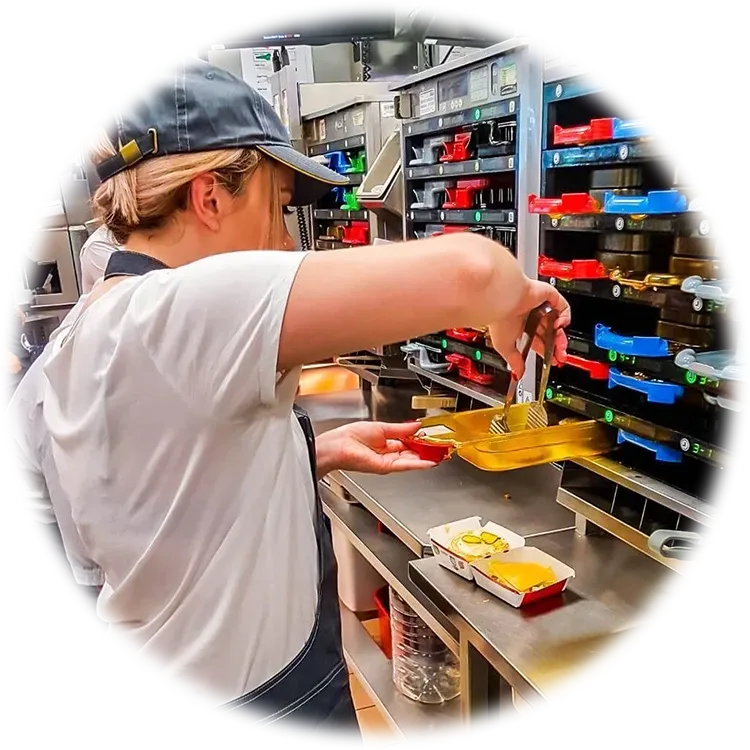
So what's changed? Let's look at McDonald's again.
At its core, McDonald’s franchisees are still doing the same thing they were 50 years ago: making and serving hamburgers, fries and other fast-food items. The process of assembling a burger, cooking up the fries and preparing drinks hasn’t fundamentally changed. The franchise’s core menu offerings, service models and kitchen workflows have remained remarkably consistent.
So what has changed? How has McDonald’s been able to remain in the forefront of operational efficiency and global dominance?
A big part of the answer lies in their adoption of technology and other modern tools. Today, McDonald’s utilises advanced software for inventory management, reducing waste and ensuring stores are always stocked with fresh ingredients. Artificial intelligence is employed in drive-thru operations to predict orders and improve speed of service. Mobile apps have transformed how customers interact with the brand, allowing them to place orders and pay from their phones before arriving at the restaurant or to have their orders delivered to their homes or workplaces. In some locations, robotics are being tested for cooking and preparation tasks, further optimising the kitchen workflow.
These tools have enabled McDonald’s to serve millions of customers daily with unprecedented efficiency, but the core system that made them successful—quick, standardised food service—remains largely the same as it was during Ray Kroc’s time. The difference is not in the systems, but the tools which make the systems work better.
The lesson here for franchisors is clear: you don’t necessarily need to overhaul your systems to stay competitive. Like McDonald’s, the secret to sustained success may lie in using new tools to refine and optimise your existing systems. Implementing the right tools can reduce inefficiencies and allow franchisees to focus more on delivering a top-notch customer experience. Here are some examples:
Point of Sale (POS) Technology: Modern POS technology can integrate inventory management, customer relationship management (CRM) and sales tracking all in one place.
Inventory Management: Equiping franchisees with real-time inventory management tools helps them to manage stock more efficiently, avoiding stockouts or excess inventory.
Automation: Software and apps which automate repetitive tasks such as scheduling, payroll, invoicing and credit control free franchisees's time up to focus on productive tasks such as marketing and sales.
5. Foster a Culture of Innovation and Support
As a franchisor, your long-term success depends not only on the strength of your business model but also on the culture you foster across your franchise network. Developing a culture of innovation and support—both for your franchisees and your own support team—can be the game-changer that ensures sustained growth, operational excellence and a competitive edge in today’s evolving market.
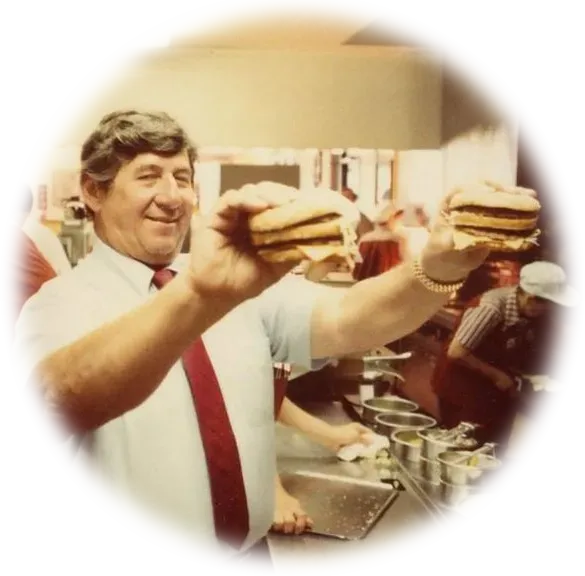
Examples of franchisees who made their franchisors richer
This is Jim Delligatti, an early McDonald's franchisee and inventor of the ... you guessed it. Delligatti came up with the concept of the Big Mac in 1967 and started selling them for 45 cents. The cost of a McDonald's hamburger at the time was 15 cents so by adding an extra patty and layer of bread, Delligatti was able to triple his revenue from the new product and probably 10X his profit. McDonald's founder Ray Kroc knew a great opportunity when he saw one and by 1969, the Big Mac was available in all McDonald's stores and accounted for accounted for 19% of total sales. Delligatti reportedly said that he had received no royalty payments for the creation of the Big Mac, but had received a plaque. He ended up owning 48 McDonald's stores.
A surprising number of the McDonald’s core menu items was created by franchisees. Franchisees created the Filet O-Fish, the McFlurry and Breakfast Burritos. In 1972, Herb Peterson, who operated six stores in California, put an egg, cheese and Canadian bacon between an English Muffin. The Egg McMuffin would become a centerpiece of McDonald’s new breakfast rollout. Today, breakfast is more than a quarter of the chain’s domestic sales, or more than $10 billion in U.S. sales annually.
Subway, KFC, Wendy's, Dairy Queen and many other franchise giants all tell legends of how franchisees came up with innovations that helped them refine and refresh their business models.
Here are some ways that best-practice franchisors encourage continuous improvement and innovation from within their organisations—and from outside:
Create a Franchisee Innovation Hub: Establish a forum where your team and franchisees can share new ideas, innovations or local promotions that have been successful. Reward creative thinking, and highlight those who come up with the best strategies. Often bringing in an independent third-party facilitator such as myself can encourage more open discussion and brainstorming.
Ongoing Support and Mentorship: Franchisees who feel supported are more likely to succeed. Provide continuous training and support, whether through virtual coaching, peer mentorship programmes or regional meet-ups.
Test and Scale: Once an innovative idea has been tested and proven in one franchise location, roll it out across the network. Whether it’s a new product, service enhancement, or a unique marketing tactic, scaling successful initiatives can have a tremendous impact on sales growth system-wide.
5. Franchisee Financial Health and Growth Planning
A franchisee struggling financially won’t be able to invest in growth. Help your franchisees stay financially healthy by offering tools and resources to optimise their cash flows and reinvest in their businesses.
Here's an inspirational example of how Jim's Group built Australia's largest franchise by helping its franchisees to grow their businesses and remain financially healthy.
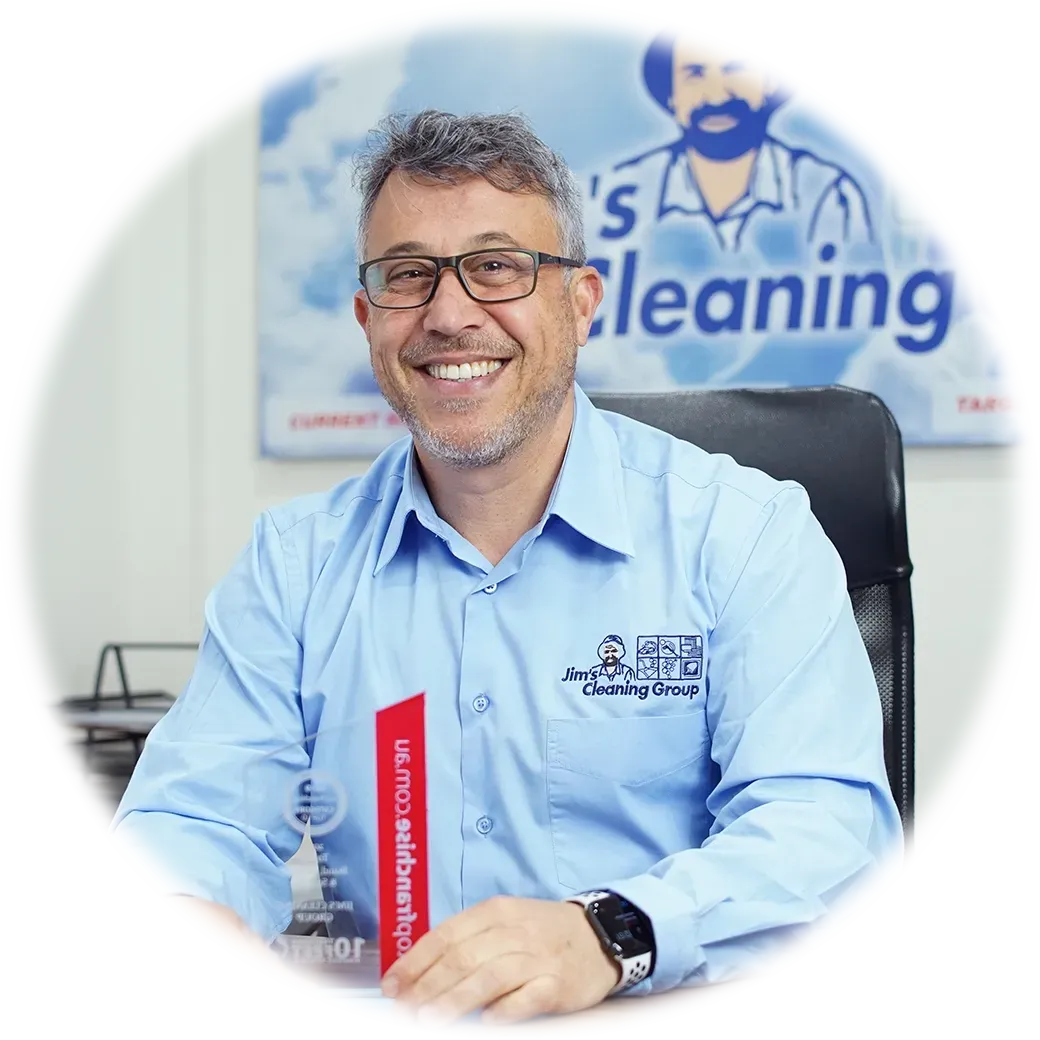
Case study: The cleaning franchisee who cleaned up in Australia
With more than 5,400 franchisees, Jim's Group is the biggest franchise in Australia and has expanded into New Zealand, Canada and the UK.
Pictured above is Haydar Hussein. In 1994, Hussein launched his own cleaning business, and within just six months, it was thriving. However, after six years of growing the company and refining his expertise, he realised that turning his business into a national brand was financially out of reach. Determined to leverage his industry knowledge, he began exploring new opportunities. His search led him to Jim’s Group, a well-established franchising giant with a proven brand and system.
Hussein saw potential in partnering with Jim’s Group and decided to purchase a regional franchise for Jim’s Cleaning in Western Melbourne. He rebranded his existing business under the Jim’s Cleaning banner, and from there, his success story truly began.
In just three years, Hussein expanded his reach, acquiring the remaining regions nationwide, giving him full ownership of the Jim’s Cleaning franchise network across Australia. Now serving as the National Franchisor for Jim’s Cleaning, Haydar is dedicated to continued growth, aiming to surpass even his own original expectations.
Want to grow your franchise like Jim Penman did with Jim's Group? Recruit and work with smart and ambitious franchisees like Haydar Hussein and support them with:
Financial Health Check-ins: Regularly review franchisees’ financials, looking at everything from profit margins to cost controls. Offer guidance on how they can reduce expenses, negotiate better deals with suppliers, and improve cash flow.
Growth-Focused Business Plans: Work with franchisees to create growth roadmaps that focus on scaling their operations over time. Whether it’s opening a second location or adding new revenue streams (such as delivery services or online sales), a clear plan will guide them toward sustainable growth.

My mission: To help franchisors like you to grow
My name is Robin La Pere (that’s me in the photo about to board the Eurostar) and as well as being a franchise consultant and coach, I have managed corporate franchises and started and owned my own franchises. Which means I understand exactly what you’re going through as a franchisor, franchise executive or business owner considering expansion through franchising or licensing.
There are many reasons to hire me to help you franchise your business, improve your existing franchise or accelerate your franchisees' growth:
Free Initial Consultation: This gives us the opportunity to get to know each other at no cost or obligation. Once I have gained a better understanding of your business and goals (treated in strictest confidence, of course) I will be able to explain some of the ways I could add value to your business and help you find the solutions you are looking for.
Start Small or Big: Most of the work I have done with my clients has started as a small project and grown into a longer-term kind of partnership once they have seen the results we have been able to achieve together.
Strategic Approach: I know from my own experience how hard it can be when you're involved in the day-to-day operation of your franchise to see beyond your immediate needs and visualise the big picture for the business. That's where I come in, offering what I like to call a 'fresh pair of eyes' to spot opportunities you may have missed. I also take a holistic approach, understanding that growth doesn't just come as a result of one activity but a range of interconnected activities. For example, the best sales and marketing in the world won't be effective if your people, systems and supply chain can't keep up with demand.
Affordability: To make the costs of my professional services as cost-effective as possible, I work differently from many other professionals. Instead of employees, I work with a virtual team of specialists in fields that may be outside my field of expertise. I turn to these only when required, which allows me to offer you comprehensive services without high overheads. And I really do pass the savings on to you. I also use proven systems, AI and automation to speed up and take cost out of my processes.
Share on your Page:
Follow us:


